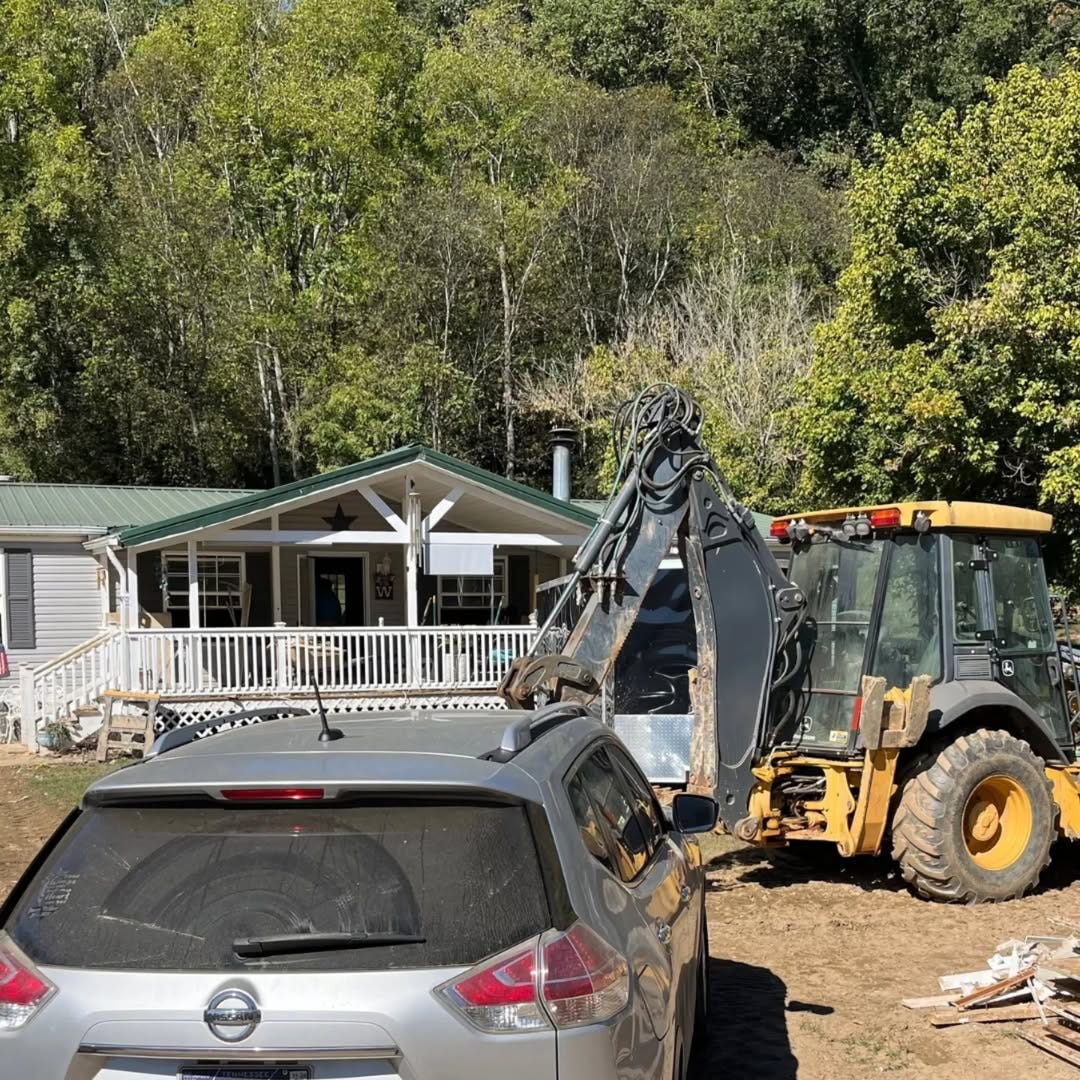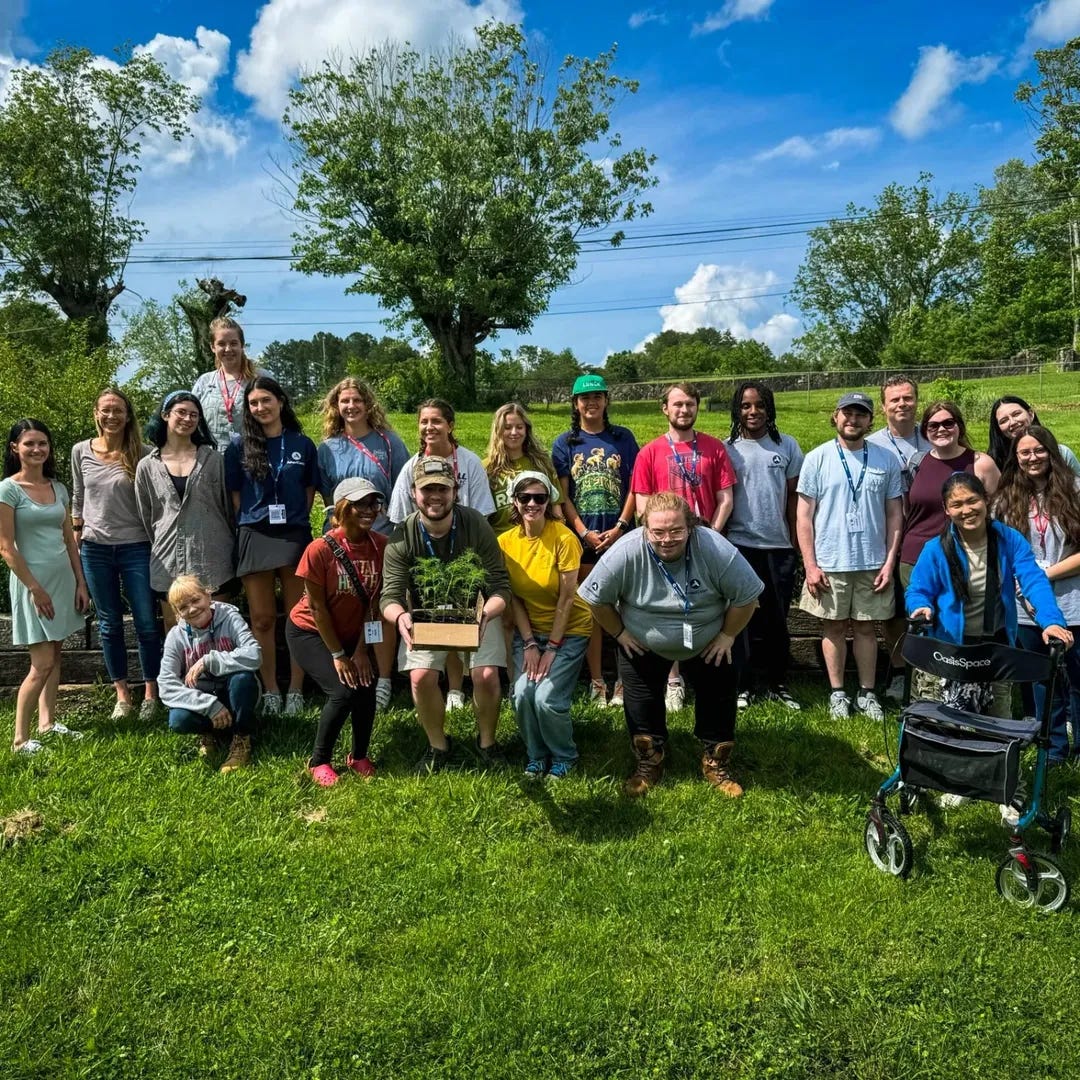Building Collaborative Futures
Thinking about how our sector is impacted by and might respond to the ongoing financial cuts
No doubt you've noticed that the current presidential administration's massive cuts have significantly impacted many areas of society, including the nonprofit sector. It has impacted Rē as well, but in a few curious ways that you may not have thunk. We invite you to read along with us to understand more about this moment for Rē, our communities, and other partners. We are all navigating a different terrain during the second half of the year than we did at the beginning.
The Scale
The Trump administration's federal funding cuts have devastated the nonprofit sector on an unprecedented scale. The administration has slashed nearly $400 million in active AmeriCorps grants alone, forcing 32,000 people—mostly young adults but also senior members and associates—to immediately stop their work in fields like disaster recovery, education, environmental stewardship, and public health. Both Rē and Growing Roots, working in collaboration, were awarded several AmeriCorps associates. We are really excited to have them working with us, even if it is for a much shorter time frame than we had initially applied for! We suspect that working in collaboration together was supportive to our being able to be awarded any Americorps associates at all.
The cuts are hitting essential services that communities depend on most. Meals on Wheels, which delivers hot meals to more than 2 million homebound people over 65, receives approximately 35-40% of its funding from the federal government. In San Diego, nonprofit leaders declared a "state of civic emergency," warning that federal funding cuts have pushed the sector and the communities it serves into crisis. Hundreds of arts groups across the U.S. received emails notifying them of the withdrawal and termination of National Endowment for the Arts grants.
Just so you know, Rē is not amongst this category - our primary funding comes from private foundations, individual donors, and very small project grants. But many of our partners and many of our community members are very impacted by these changes.
The Ripple Effects Beyond Our Sector

One of the biggest challenges for the non-profit sector is the impact of cuts that are outside of our direct sector but that impact the communities we are working with. An example of this is budget constraints affecting critical disaster relief services—an increasing concern as climate change intensifies extreme weather events. With reduced capacity for disaster preparedness and response, people are left more vulnerable during life-threatening storms.
Last year, Rē collaborated with Growing Roots, Together for Hope, and Highlander in a call to action for disaster relief efforts after Hurricane Helene hit Tennessee and North Carolina. We saw first hand what post-hurricane damage looks like on the ground. We saw the importance of government responders such as FEMA and AmericaCorps. What happens when they aren't there? In an era of climate change-induced storms only increasing, this means a lot of people's lives, livelihoods, and ecosystems are in increasing danger.
The Capacity Limits We're Facing
Private foundations award around $107 billion annually to U.S. nonprofits. To make up for the loss of government grants, private foundations would have to increase their grantmaking by 282%. As philanthropy experts have noted, foundations and philanthropists are being overwhelmed with requests to fill funding gaps, especially for large-scale programs that receive substantial government support.
Big cuts to federal grants are now affecting nonprofits that don't get federal support because private foundations are being swamped with requests to fill funding gaps.
Rē's Response: Resilience Through Partnership
A recent analysis published by Candid (an outlet that serves the nonprofit sector)suggests that this crisis also presents an opportunity to fundamentally (Rē)imagine (see what we did there :) ) how we work—shifting "from viewing nonprofits as service providers to recognizing them as builders of solutions and architects of systemic change." The article critiques how "the current funding system incentivizes competition over collaboration" and calls for an "ecosystem approach—where different actors bring their specific strengths, expertise, and local knowledge to the table."
This suggestion is beautiful to hear for Rē: our entire model is based on participatory partnerships. From our founding to now, we don't do anything alone. That also means that we move slowly: but we tend to move together, with the input of our community. The co-founders have woven into the bones of Rē their extensive analysis and work in the interconnecting fields that contribute to building regenerative cultures, especially in education, horizontal leadership, cross-cultural learning journeys, agroecology, food systems, peacebuilding and working in rural communities.
Today, our staff don't just work with other organizations—they're embedded in deep partnerships that span different sectors and communities, giving them the "unusually broad systems perspective" that the Candid article suggests is needed to address interconnected environmental and social challenges. Stephanie's close collaborations with organizations on the South Cumberland Plateau in Tennessee and beyond are vital to the work Rē is doing. Krissy's experience in indigenous communities and organizational development brings additional levels of perspective to our work. They both bring experience with a wide variety of organizational development thinking, finance, and strategy, as well as in our core content - innovative, lifelong education for regenerative cultures.
Moving Forward Together
We are getting curious about some of the general suggestions we are seeing for the non-profit sector right now. This includes diversifying revenue streams, building strategic partnerships and coalitions, and implementing scenario planning and emergency preparedness. Here at Rē we had already been creating some environmental 'to go' bags and looking at what options we might have for an emergency fund. We are also currently undertaking transition planning. These all will be supportive as we move and pivot.
It does seem that our experiences in regenerative, holistic, participatory ecosystems approaches to structural innovation are, now more than ever, standing out as important approaches for the wider sector that we are a part of. We expect that continued collaboration and diversification will continue to be necessary strategies for adaptation. Which is not to say we’ve got it all figured out - not by a long shot!
Right now, we are watching some of our colleagues struggle with "keeping the lights on" - and for some organizations, if those lights go out, it is not clear if they will come back on, and/or who will pick up the slack. Yes, we as a people are resilient, but sometimes good things don’t reappear for a long time. If you or your colleagues are in that situation, we hear you.
Today, we are able to continue offering and partaking in meaningful on-the-ground, in-the-soil, and in peoples lives kinds of programming. It's good work, and we are honored to be able to do it together. And we know, all of us are going to be needed to find ways through these continuing cuts to how we have been working, and finding both old and new ways of regenerative approaches. Which we can do.
References
Associated Press. "Trump's gutting of AmeriCorps hits hard, for both volunteers and communities." NPR, May 9, 2025.
Candid. "Embracing an Ecosystem Approach for Philanthropy." FSG, May 6, 2024.
CBS News. "Trump administration cuts to AmeriCorps causing 'damage and chaos,' groups say." May 8, 2025.
Dorothy A. Johnson Center for Philanthropy. "11 Trends in Philanthropy for 2025." March 17, 2025.
KQED. "Trump Administration Slashes $400 Million in AmeriCorps Funding." May 4, 2025.
Meals on Wheels America. "Meals on Wheels America And NANASP Alarmed By Federal Funding Cuts To Senior Nutrition Programs." March 26, 2024.
PBS News. "How federal funding cuts have hit nonprofits and the communities they serve." May 19, 2025.
The Washington Post. "Trump administration ordered to reinstate AmeriCorps grants in 24 states." June 5, 2025.




